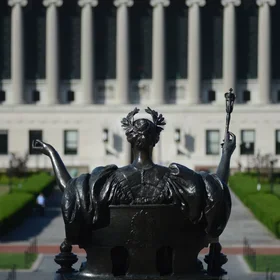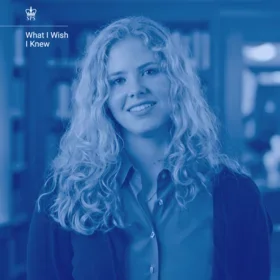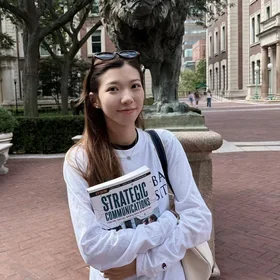Andrew Jung joined Columbia University's Master of Science in Human Capital Management (HCM) program as a part-time student in September 2019. “I was between a part-time MBA and this program,” Andrew shares, noting that he always had an interest in human capital. “I knew that there was a distinct difference between human resources and human capital,” Andrew observes. He goes on to explain, “there have been so many changes and transformations happening in this function, and regardless of where this function went, I knew that people strategy was going to be extremely important in the future.” What ultimately led Andrew to choose the HCM program was an enthusiastic recommendation from a friend in the program. “Plus, I wanted to get a Columbia sweater for my mom too,” he quips.
Reflecting on his experience with the program as he enters his final semester, Andrew highlights some key takeaways, including the benefits of adopting a big-picture perspective. “Through all the classes, I learned how formal designs and informal designs come together to create what’s visibly felt and seen in organizations,” Andrew says. Once you understand how the gears move, he explains the ways broader connections begin to become clearer. “If you take a class like Finance,” he says, “you’ll be able to tie those insights back to an organization’s financial statements.” He goes on to say, “there is no ‘one size fits all’ approach.” However, through the classes, projects, and case studies, Andrew has found “the program teaches you to quickly create approaches to solving incredibly complex organizational problems.”
Andrew recently accepted an offer with Deloitte Consulting in the company’s HR Transformation practice, where he’s sure to put his HCM program learnings into practice. He cites his very first class in the program, Effective Business Partnerships, with building skills in staying alert and agile. “I’m comfortable with being nimble, and I operate well in situations that have certain levels of uncertainty,” Andrew says of a set of skills that will certainly prove beneficial in a new position. He also notes the importance of the frameworks that he developed from each of the different courses. Sharing one example, Andrew says “if I think about technology implementations, there is always a ‘people’ component to the technology implementation.” He explains how he’ll implement that big-picture perspective, sharing “I think outside of HR Technology and ask, ‘how will change be communicated’ and ‘what are the barriers to success?’”
For prospective and current students alike, Andrew’s key advice circles back to people. “Reach out,” he advises. “I didn’t do enough of that my first year, especially when we shifted to Zoom due to the pandemic.” He may have been reluctant to reach out initially, but upon reflection, he has come to realize, even more than the course material, his connections may be his greatest takeaway. “Some of my greatest memories, interactions and learnings came from the staff and peers,” Andrew says. Despite the challenges of juggling course work with a full-time job, not to mention life beyond the laptop, taking the time to cultivate these relationships is invaluable. “I knew that I wanted to go into human capital consulting, but the energy I created and received working with others in this program confirmed that. I learned so much from them.”
Learn more about Columbia's M.S. in Human Capital Management.


